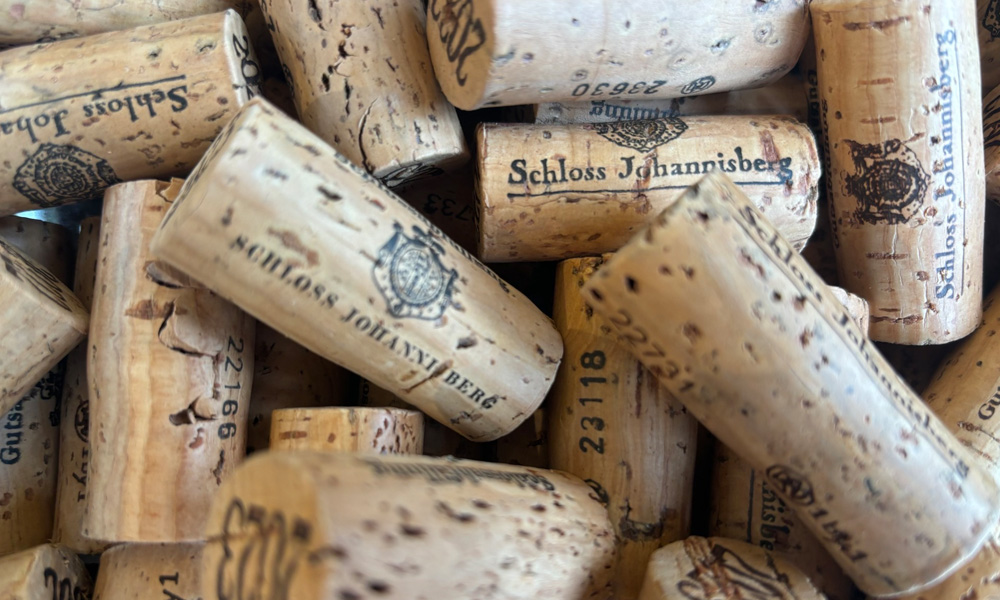
Our new wines from vintage 2023 have been bottled since February and are already on sale. The natural cork is traditionally used at Schloss Johannisberg to seal high-quality Riesling wines.
We source our corks from Portugal, the largest cork producer in the world. Cork oaks grow in huge forests there, from whose bark the precious raw material is extracted. The bark can be carefully peeled off by hand with an axe about every 9 years. The impressive thing is that the tree is not damaged by the harvest, but on the contrary becomes more robust. The cork sheets obtained are dried in the open air and then boiled twice to sterilize them and make them more flexible. Then the desired shapes can finally be punched out of the cork sheets – the small cylinders that protect our wine. Before a wine cork can be used, it is sterilized again and then cut, polished, washed, and packaged. Careful production ensures that there is no cork taint in the wine later on.
Are you wondering why we seal our wines with natural corks?
Natural corks go very well with our storable Rieslings, as they allow a minimal supply of oxygen over the years, which helps the wine to mature. It is important that the bottles are stored horizontally to protect the cork from drying out. A good cork as a product of nature perfectly rounds off the wine experience and the development of the fine aromas.
All corks that leave the bottle necks at Schloss Johannisberg are collected and sent for recycling. There, corks can be granulated, pressed and reused as a substitute for leather or flooring, for example. Its 100% recyclability and the fact that cork oak forests are habitats for protected species such as the golden eagle or the Iberian lynx make the natural cork stopper a true hero of nature.
And quite apart from all the background information – doesn’t the familiar sound of opening a bottle of wine also give you pleasure? Here’s to the pop!
